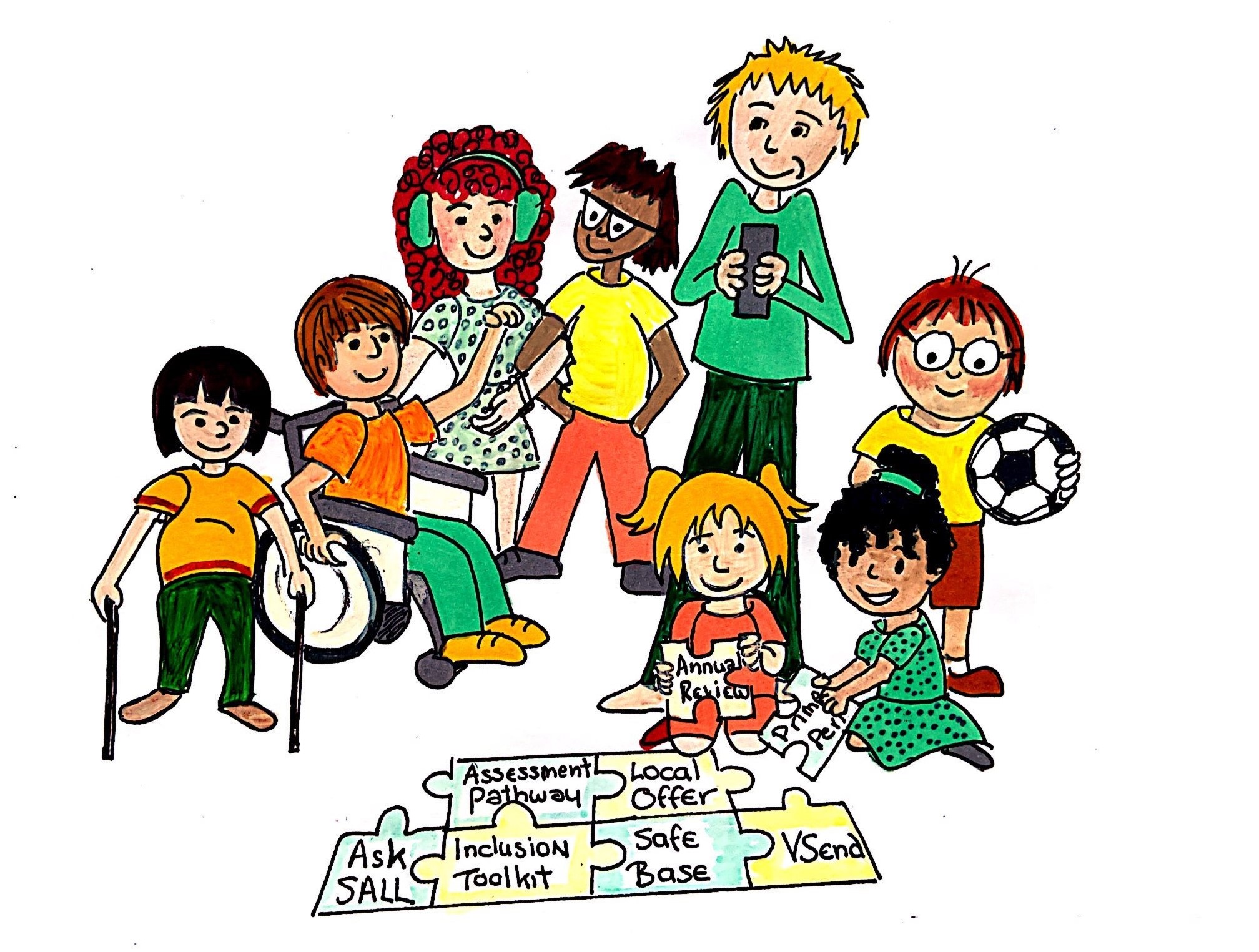Level 5-6 what you may notice
0-5
The child has severe hearing loss. Their needs are met through the use of assistive technology. The child accesses short programmes targeting specific areas of language where necessary to ensure age related levels of independence are maintained. The child will have regular contacts from a Qualified Teacher for children and young people with a Hearing Impairment (QTHI) from SEST.
- will have a severe or profound hearing loss and will have hearing aids or cochlear implants
- will need to focus their visual attention for long periods of time. For example, to lip read the different speakers and to watch someone using sign support
- may have difficulties with early literacy. For example, pre-reading and pre-writing skills"
- may have delayed language development, and difficulties in perceiving some speech sounds, especially at the end of words , gaps in vocabulary and general knowledge
- may have significant difficulty in processing verbal information at the same speed as their peers
- may be ongoing difficulties in the acquisition of language and new vocabulary
- may become tired towards the end of the session due to having to concentrate hard on listening, especially in more noisy environments
- may miss out on incidental learning as they are unable to overhear conversations, programmes on the radio
- may need support with social interactions with their peers and find it difficult to maintain positive self-esteem and social confidence
- may need support to fully develop an understanding of others and maintain positive relationships with peers
- without specialist support they will be at high risk of not achieving and maintaining levels of attainment in keeping with their age and abilities or making expected progress
5-16
The pupil has a classified hearing loss (see descriptor below). The pupil’s needs are met through the use of assistive technology to enable them access the curriculum. The pupil accesses short programmes targeting specific areas of language where necessary to ensure age related levels of independence are maintained. The pupil will have regular contacts from a Qualified Teacher for children and young people with a Hearing Impairment (QTHI) from SEST.
- will have a severe or profound hearing loss and will have hearing aids or cochlear implants
- will need to focus their visual attention for long periods of time. For example, to lip read the different speakers or to watch someone using sign support
- may have difficulties with literacy. For example, reading comprehension and grammatical structure and content in written English
- may not be able to benefit from usual approaches to learning to read
- may have delayed language development, gaps in vocabulary and general knowledge
- may have significant difficulty in processing verbal information at the same speed as their peers
- may miss out on incidental learning as they are unable to overhear conversations, programmes on the radio
- may need support with social interactions with their peers and find it difficult to maintain positive self-esteem and social confidence
- may need support to fully develop an understanding of others and maintain positive relationships with peers
- without specialist support they will be at high risk of not achieving and maintaining levels of attainment in keeping with their age and abilities or making expected progress


